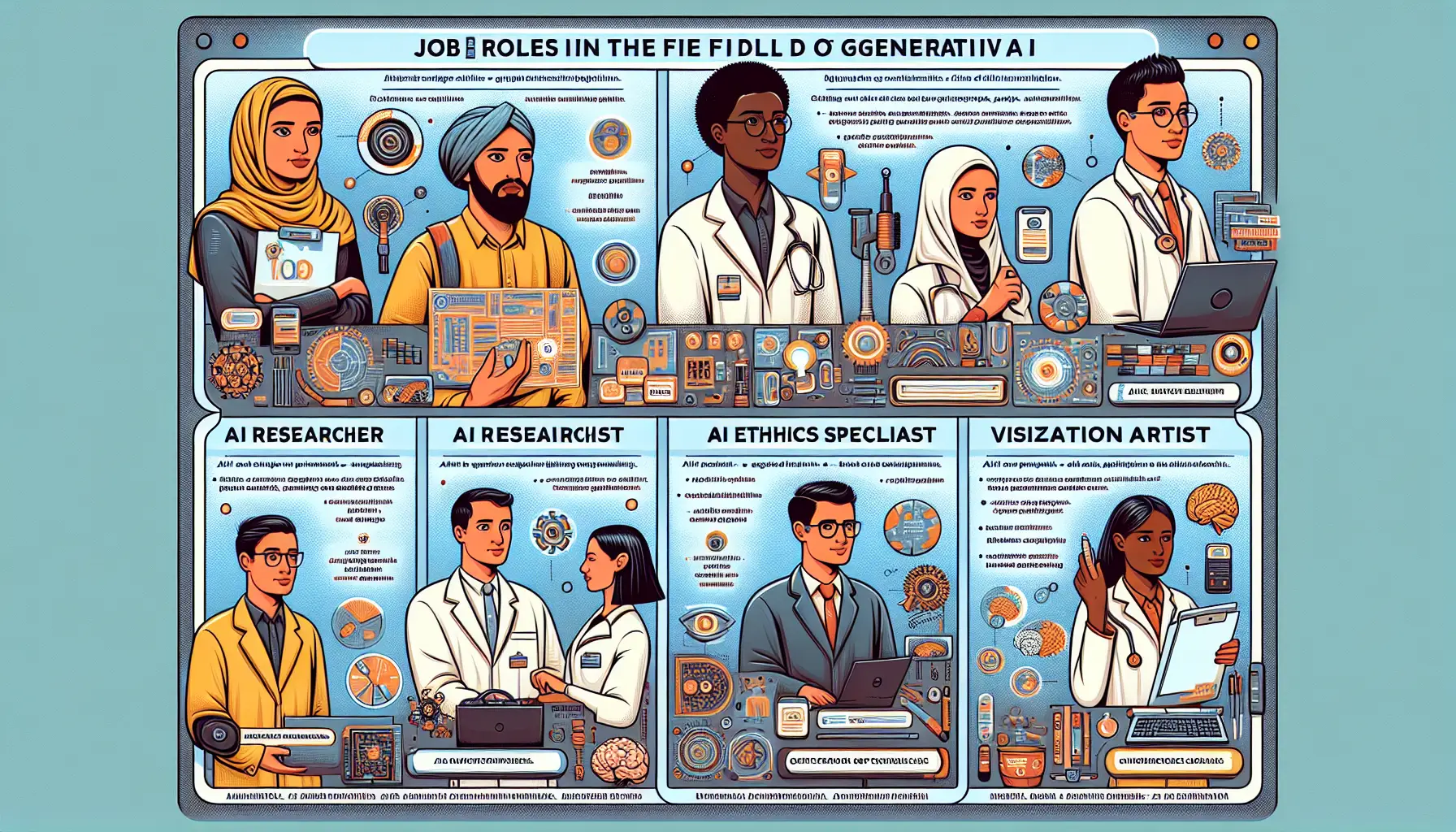In a rapidly evolving job market, understanding the requirements for positions related to Generative AI (GenAl) is becoming increasingly vital. As companies across various sectors adopt AI technologies, the demand for skilled professionals is surging. Nonetheless, many individuals may still be unfamiliar with the specific qualifications needed for these exciting roles. This article aims to demystify the job requirements for GenAl positions, exploring the skill sets, educational backgrounds, and experiences that candidates typically need to thrive in this emerging field.
- Defining Job Requirements
- Key Skills for GenAl Roles
- The Role of Education and Experience
- Understanding Work Environment Expectations
- Future Perspectives in GenAl Careers
Defining Job Requirements in Generative AI (GenAl)
Job requirements for roles in Generative AI vary broadly, but they generally encompass a mix of education, experience, skills, and personal attributes. Understanding these requirements is crucial for job seekers aiming to position themselves competitively within the labor market.
Job requirements can be categorized into several key areas:
- Educational Background: Most GenAl positions require at least a bachelor’s degree in a related field such as computer science, data science, or software engineering.
- Technical Skills: Proficiency in programming languages such as Python, R, and Java, as well as a solid understanding of machine learning and data analysis, are essential.
- Work Experience: Employers typically seek candidates with prior experience in AI development, whether through internships, research, or existing employment in the tech industry.
- Soft Skills: Good communication, teamwork, and problem-solving abilities are critical, as collaborative efforts in AI projects are common.
| Type of Requirement | Description |
|---|---|
| Educational Background | Bachelor’s degree in computer science, data science, or software engineering |
| Technical Skills | Proficiency in programming languages (Python, R, etc.) and understanding machine learning techniques |
| Work Experience | Internships or professional experience in AI development or related fields |
| Soft Skills | Strong communication, collaboration, and analytical skills |

Exploring Key Skills for GenAl Roles
The field of Generative AI is multi-faceted, demanding specific technical competencies in addition to a broad understanding of how AI systems operate. Let’s take a deeper look at some of the critical skills required for GenAl jobs:
- Programming Languages: Mastery in languages like Python, especially libraries like TensorFlow and PyTorch, is crucial for building AI systems.
- Machine Learning Understanding: Candidates should grasp machine learning algorithms, model training processes, and evaluation metrics.
- Data Analysis Capabilities: Proficiency in data manipulation and analysis using tools such as SQL or Excel is vital for pre-processing data.
- Cloud Computing Knowledge: Familiarity with cloud services (AWS, Google Cloud) enables efficient deployment of AI models.
- Cybersecurity Awareness: As AI systems become more prevalent, knowledge about cybersecurity risks and measures is increasingly important.
These skills are often evaluated through real-world project experiences. Potential employers typically seek candidates who can demonstrate their abilities through portfolios, showcasing their projects, algorithms they’ve developed, and the results achieved.
The Role of Education and Experience in GenAl Positions
Educational qualifications and practical experience are paramount when delving into GenAl jobs. Each educational choice influences a candidate’s readiness for the challenges presented within the AI industry.
A bachelor’s degree in a relevant field is typically the minimum requirement. More advanced positions often demand a master’s degree or further specialization in AI or machine learning. Education equips candidates with foundational knowledge necessary for successful careers.
Types of Education and Training Required for Different GenAl Positions
As the field of generative AI expands, job seekers should consider pursuing the following relevant educational paths:
- Undergraduate Degrees: Start with a degree in computer science, data science, or mathematics.
- Graduate Programs: Explore master’s programs focused on data science, artificial intelligence, or applied analytics.
- Certifications: Obtain certifications in machine learning or data analysis from recognized online platforms or universities.
| Degree Type | Significance |
|---|---|
| Bachelor’s Degree | Initial qualification for entry-level jobs in GenAl |
| Master’s Degree | Deep knowledge and specialization for advanced roles |
| Professional Certifications | Proof of expertise in specific AI fields |

Alongside formal education, relevant experience plays a crucial role in any GenAl job. Internships or project work that allows candidates to apply theoretical knowledge practically is imperative. Many companies favor applicants with tangible experience in AI technology deployment or real-world machine learning projects, as this demonstrates not only capability but also adaptability.
Understanding Work Environment Expectations
Understanding the work environment and job expectations is essential when considering a position in the generative AI field. The nature of AI projects often requires collaboration across various disciplines, including data scientists, engineers, and business strategists.
- Collaborative Work: Be prepared to work in teams that span different areas of expertise, often engaging in brainstorming and collaborative projects.
- Adaptability: The fast-evolving nature of AI technology necessitates a willingness to learn and adapt to new tools, languages, and methodologies.
- Cultural Fit: Aligning with the company culture, especially in terms of innovation and growth mindset, is crucial for long-term success.
Many companies utilize a performance-oriented approach, evaluating employees based on their contribution to projects and whether they meet set objectives and expectations.
Future Perspectives in GenAl Careers
The landscape of generative AI continues to evolve, paving the way for expansive career opportunities. As more organizations embrace AI, the demand for skilled professionals who can develop and manage these technologies will increase.
According to recent data, the number of jobs in AI-related fields is expected to grow significantly. For example, by 2025, it is estimated that jobs in AI and machine learning could rise by up to 40%, reflecting the expanding adoption of these technologies across industries.
Predictions suggest that future roles will not only require technical skills but also robust analytical abilities and innovative thinking. Candidates who stay current with trends and enhance their skills will stand out in the job market.
Tips for Starting a Career in GenAl
For those interested in commencing a career in generative AI, consider the following steps:
- Participate in Online Courses: Platforms like Coursera and Udacity offer valuable courses on AI and machine learning.
- Join Professional Networks: Engage with communities that focus on AI, such as AI-specific forums and conferences.
- Contribute to Open Source Projects: Gaining hands-on experience through collaborative projects can greatly enhance your resume.
As the demand for GenAl professionals continues to rise, positioning yourself effectively by gaining the right skills and experiences will undoubtedly increase your chances of securing an exciting role in this revolutionary field.
| Action Item | Impact |
|---|---|
| Complete Online Courses | Build foundational knowledge in AI and machine learning |
| Network with Professionals | Gain insights and job opportunities within the industry |
| Engage in Open Source Projects | Acquire practical experience and demonstrate skills to potential employers |
